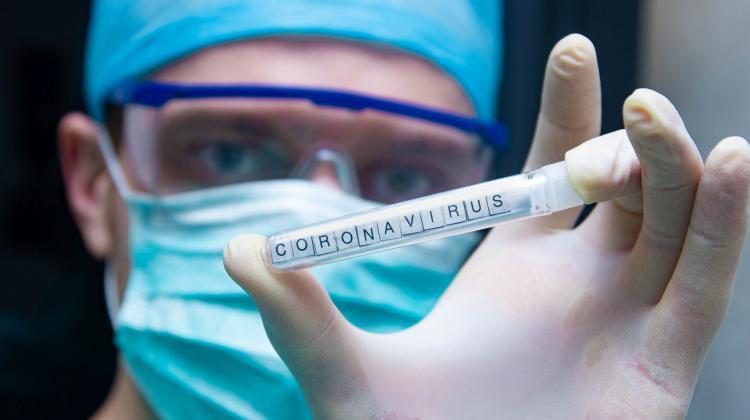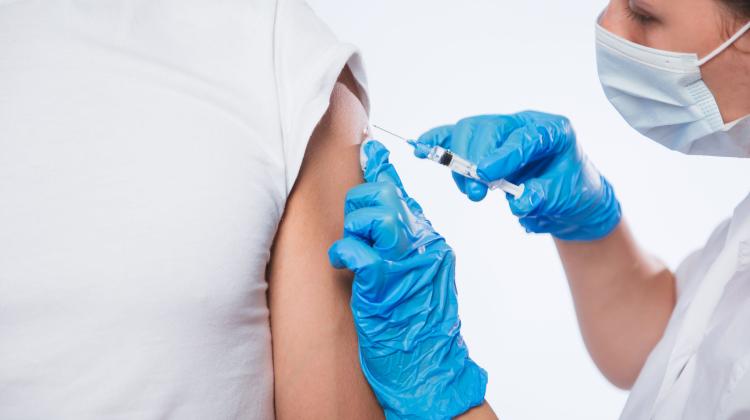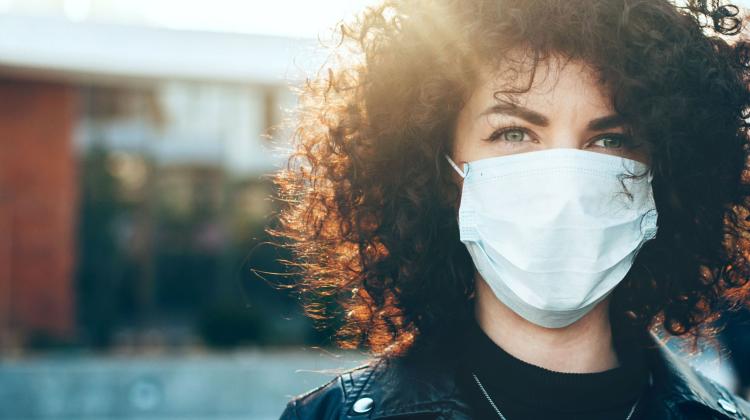Doctors’ morals put to the test by pandemic, says top bioethicist
 Credit: Adobe Stock
Credit: Adobe Stock
A doctor is a profession that involves extremely high moral risk, which materializes during a pandemic, says a leading bioethicist.
Dr. Joanna Różyńska, chairwoman of the Bioethics Committee at the Presidium of the Polish Academy of Sciences, Dr. Joanna Różyńska from the University of Warsaw, said that today doctors today have to act in a non-optimal way, with limited knowledge and resources and that there is a tension between helping patients and responsibilities towards oneself and the family.
She said: “Life under stress, physical exhaustion, assisting people with a serious illness... The medical profession involves an extremely high moral risk. This risk materializes during a pandemic.
“Physicians are taught how to act professionally, how to follow procedures, how to use protection measures. But now, during the pandemic, there are no resources to do it. Physicians must work in a sub-optimal way. This is a very difficult situation.”
Among the new ethical problems in a physician's work is the need to work in the absence of sufficient knowledge and competence, as well as problems with coordination of activities.
Dr. Różyńska said: “At the beginning of the epidemic, a large part of the effort was in vain. It was unclear how to treat patients and how to handle them, and in addition health care activities were poorly planned and uncoordinated. This frustrated many doctors. Some of them felt the need to oppose orders that they considered wrong.”
She also drew attention to the issue of doctors' internal tension, which happens when two spheres meet: the need to fulfil professional duties, help patients - and obligations towards themselves and their own families.
She said: “At the beginning of the epidemic in Poland, nurseries and kindergartens were closed, and parents could take parental leave. The media reported that many nurses took advantage of this possibility. I think that this decision was ethically difficult for some of them.” She added that such dilemmas as work or family arise also because the state does not provide sufficient protection for medical professionals.
The percentage of infections among doctors, nurses and rescuers is high compared to the rest of the population, and coronavirus tests are not regular. “This,” she said, “must have influenced the decision concerning childcare, which they made with a heavy heart, being aware of how limited the resources were.”
The world heard about the difficult ethical dilemmas of doctors when in Italy, due to an insufficient number of ventilators, doctors had to choose which patients to save. Currently, the problem of access to limited resources during the pandemic has a slightly different form.
In the US there is a problem with selecting patients who will receive access to already approved COVID-19 drugs. The supply of these drugs is lower than the demand.
But according to Dr. Różyńska there is another dilemma because these drugs are still clinically untested. It is therefore unclear whether they will bring the patient more benefit or harm.
In the future, when a vaccine for SARS-CoV-2 appears, we will have to answer another difficult question: who should be vaccinated first?
Różyńska says that in Poland 'we do not have a clear standard' as to whom to give priority access to intensive care, drugs and vaccines. But she noted that clearly defined rules on who receives certain limited benefits first have long-existed in many areas of medicine. This applies to transplantology or emergency medicine, where a patient segregation model has already been developed.
She said: ”The basic criterion is the clinical need, combined with the expected benefit for the person. If we have one respirator and two or three patients, it seems rational to use it for the person who will really benefit from it, who it will actually help, and not just prolong agony.
“But what does it mean to maximize benefits? Does it mean that we should save as many lives as possible? As many years of life as possible? Or maybe save lives that have some subjectively higher value? These are philosophically and ethically charged questions.”
She added: “In addition to the principle of maximizing benefits, the additional rule should be, for example, the principle of prioritising people who are on the medical front line: doctors, nurses, paramedics. Because after receiving help themselves they will be able to continue to help others and save more lives.”
But whereas bioethics commissions in Italy and France have issued guidelines for doctors to help them deal with such extraordinary situations, these are only recommendations and the final decision about who gets priority will be on the doctors.
In Różyńska’s opinion, the pandemic can have a huge impact on the mental state of medical professionals. Therefore, they should seek both psychological and substantive support (including consultations with experts in non-medical professions).
PAP - Science in Poland, Ludwika Tomala
lt/ zan/ kap/
tr. RL
Przed dodaniem komentarza prosimy o zapoznanie z Regulaminem forum serwisu Nauka w Polsce.



















